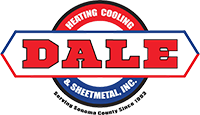Updated: 10/20/2024
As the chill of winter approaches, a reliable heater becomes your home’s best friend. But with so many options available, how do you choose the right one? This guide will walk you through essential tips to make an informed decision when buying a new heater, ensuring comfort and efficiency for years to come.
| Topic | Key Points |
|---|---|
| Heating System Types | Furnaces, heat pumps, boilers, radiant systems |
| Energy Efficiency | AFUE ratings, ENERGY STAR certification |
| Size and Capacity | BTU calculations, home square footage |
| Installation Considerations | Professional vs. DIY, existing infrastructure |
| Maintenance Requirements | Regular servicing, filter changes, annual inspections |
Choosing the right heater is more than just picking the first option you see. It’s about finding a system that balances efficiency, cost, and your specific home heating needs. Let’s dive into the key factors you should consider to make the best choice for your home and wallet.
Understanding Heating System Types
When it comes to heating your home, one size doesn’t fit all. Different heating systems cater to various needs and home layouts. Let’s explore the most common types:
Furnaces: The Tried and True
Furnaces are the workhorses of home heating. They use natural gas, oil, or electricity to heat air and distribute it throughout your home via ductwork. Modern furnaces boast high efficiency ratings, making them a popular choice for many homeowners.
Heat Pumps: Dual-Purpose Efficiency
Heat pumps are versatile systems that can both heat and cool your home. They work by transferring heat from the outside air or ground into your home during winter, and reversing the process in summer. This dual functionality makes them an energy-efficient option year-round.
Boilers: Consistent Comfort
Boilers heat water and distribute it through pipes to radiators or radiant floor systems. They provide consistent, even heat and can be highly efficient, especially in older homes without existing ductwork.
When choosing between these systems, consider factors such as:
- Your home’s existing infrastructure
- Local climate conditions
- Energy costs in your area
- Personal comfort preferences
Understanding these heating system types is crucial, but it’s just the first step. Next, we’ll delve into the importance of energy efficiency and how it can impact your long-term costs and comfort.
Prioritizing Energy Efficiency
In today’s energy-conscious world, efficiency isn’t just a buzzword—it’s a necessity. When shopping for a new heater, pay close attention to energy efficiency ratings. These numbers can significantly impact your utility bills and your home’s carbon footprint.
AFUE: The Efficiency Yardstick
Annual Fuel Utilization Efficiency (AFUE) is the standard measure for heating system efficiency. It represents the percentage of fuel converted into usable heat. For example:
- An 80% AFUE rating means 80% of the fuel becomes heat, while 20% is lost
- Modern high-efficiency furnaces can achieve AFUE ratings of 95% or higher
- Older systems may have AFUE ratings as low as 60%, wasting nearly half the fuel
ENERGY STAR Certification
Look for the ENERGY STAR label when browsing heaters. This certification indicates that the product meets strict energy efficiency guidelines set by the U.S. Environmental Protection Agency and the Department of Energy. ENERGY STAR certified heaters can help you:
- Reduce energy consumption
- Lower utility bills
- Minimize environmental impact
The Long-Term Payoff
While high-efficiency systems may have a higher upfront cost, they often pay for themselves through energy savings over time. When considering the cost, factor in:
- Potential utility bill savings
- Available tax credits or rebates for energy-efficient systems
- The expected lifespan of the system
Remember, investing in an energy-efficient heater is not just about immediate comfort—it’s a long-term strategy for managing your home’s energy use and costs.
As we move forward, we’ll explore how to determine the right size and capacity for your new heater, ensuring it meets your home’s specific needs without wasting energy.
Sizing Up Your Heating Needs
Choosing a heater with the right capacity is crucial for both comfort and efficiency. An undersized system will struggle to keep your home warm, while an oversized one will waste energy and lead to uneven heating. Here’s how to get it right:
Calculate Your BTU Requirements
BTU (British Thermal Unit) is the standard measure of heating capacity. To determine your home’s BTU needs:
- Measure your home’s square footage
- Consider factors like ceiling height, insulation quality, and local climate
- Use an online BTU calculator or consult with an HVAC professional
As a rough guide, you typically need about 20-30 BTUs per square foot in moderate climates, and 30-40 BTUs in colder regions.
Consider Zoning Options
If your home has areas that are consistently warmer or cooler than others, consider a zoning system. This allows you to:
- Control temperatures in different areas independently
- Improve overall comfort
- Potentially reduce energy consumption
Future-Proof Your Choice
When sizing your heater, think about potential future changes:
- Planning home renovations or additions?
- Expecting changes in household size?
- Considering improvements to insulation?
Factor these possibilities into your decision to ensure your new heater will meet your needs for years to come.
Proper sizing is a critical step in choosing the right heater, but it’s not the final consideration. Next, we’ll explore the installation process and why professional help can make a significant difference in your heater’s performance and longevity.
Installation: The Key to Optimal Performance
Even the most efficient, perfectly sized heater won’t perform at its best if it’s not installed correctly. Here’s why professional installation is crucial and what you should know about the process:
The Case for Professional Installation
While DIY projects can be tempting, heater installation is best left to the experts. Professional installation ensures:
- Safety: Proper handling of gas lines, electrical connections, and ventilation systems
- Efficiency: Correct setup for optimal performance and energy use
- Warranty Protection: Many manufacturers require professional installation to maintain warranty coverage
What to Expect During Installation
A professional installation typically involves:
- Removal of the old system (if applicable)
- Preparation of the installation site
- Installation of the new heater and associated components
- Testing and calibration of the system
- Explanation of operation and maintenance requirements
Choosing the Right Installer
When selecting an installer:
- Look for licensed and insured professionals
- Check customer reviews and ratings
- Ask about experience with your specific heater model
- Get detailed quotes from multiple providers
Remember, a quality installation is an investment in your heater’s performance and longevity. It can prevent future issues and ensure you get the most out of your new heating system.
As we wrap up our guide, let’s look at how proper maintenance can keep your new heater running efficiently for years to come.
Maintaining Your Investment
Congratulations on choosing your new heater! To keep it running efficiently and extend its lifespan, regular maintenance is key. Here’s what you need to know:
Routine Maintenance Tasks
- Change or clean filters regularly (usually every 1-3 months)
- Keep the area around your heater clear of debris and storage items
- Check and clean vents and registers throughout your home
- Monitor your system’s performance and report any unusual sounds or smells promptly
Professional Service
Schedule annual professional maintenance to:
- Inspect and clean internal components
- Check for potential safety issues
- Ensure optimal efficiency
- Catch small problems before they become major repairs
The Benefits of Proactive Care
Regular maintenance:
- Improves energy efficiency, potentially lowering utility bills
- Extends the life of your heating system
- Maintains indoor air quality
- Ensures safe operation
By following these maintenance guidelines, you’ll not only enjoy consistent comfort but also protect your investment for years to come.
Your Next Steps to Home Comfort
Choosing and maintaining a new heater doesn’t have to be overwhelming. With the right information and professional support, you can make a decision that brings warmth and efficiency to your home for years to come.
Remember, every home is unique, and so are its heating needs. If you have questions about selecting, installing, or maintaining a new heater, don’t hesitate to reach out to experts who can provide personalized advice.
Dale HCS, your local Sonoma County heating specialists, are here to help. As a family-owned company, we understand the importance of a warm, comfortable home and are committed to providing top-notch service to our community. Whether you need guidance on choosing the right system, professional installation, or ongoing maintenance, our team is just a call away.
For more information or to schedule a consultation, contact Dale HCS today. Let’s work together to keep your home cozy and efficient all year round.

